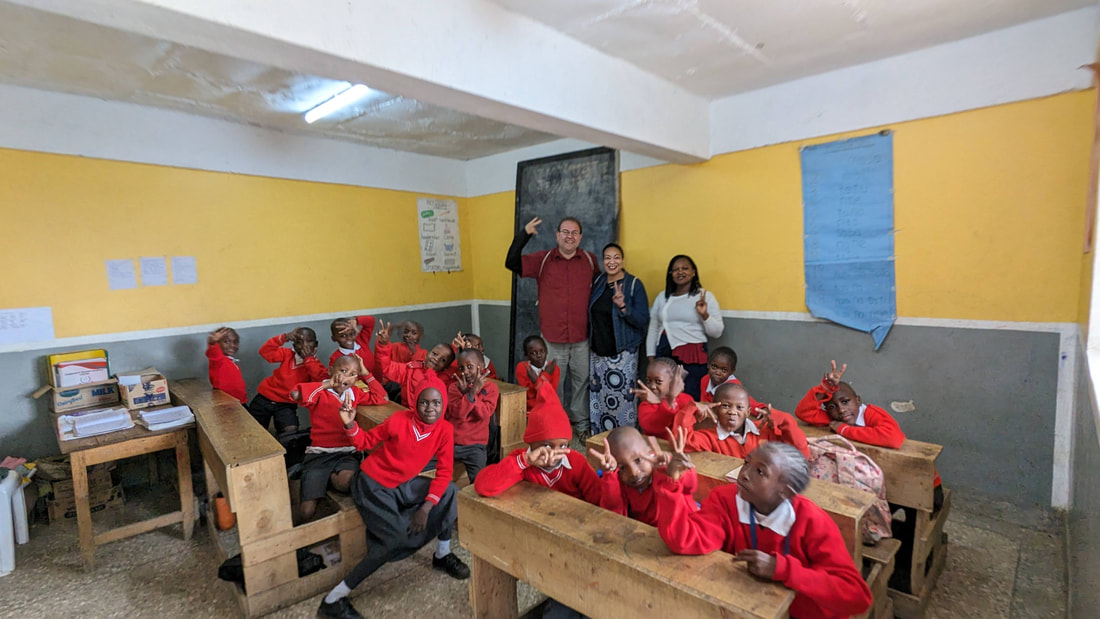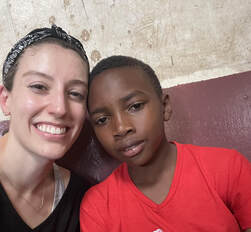|
Hey there, I'm Franco, and I want to share my journey with you. I come from a place known for its struggles, a place called Kibera, one of the largest slums in the world. Life there was far from easy, but I held onto a dream that kept me going.
0 Comments
No one is born fully formed. It is through self-experience in the world that we become what we are.
- Paulo Freire The world is full of stories. Good stories. Bad stories. Redemptive stories. Tragic stories. Everyday, stories are being written. Yours and mine. In July, my husband Michael and I had the extraordinary opportunity to travel to Kenya and represent my company RealFoundations as volunteers with Crossing Thresholds.
We had a truly life-changing trip. The experiences we had with the vibrant and smiling children, inspiring educators, resilient members of the community and the wonderful CT staff and volunteers will stay with us forever. We helped construct a fire wall at a new school, painted the interior of one of the older schools, participated in two mental health programs, visited the homes of 4 students, connected with the educators and Kenya-based CT team by learning their stories, and were greeted with the best smiles and hugs ever by the children at each school we visited. If you’re familiar with Crossing Thresholds, then you have most likely heard about the mentorship program. Many trip participants arrive in Kenya and a child captures their minds and hearts, but for those of us who remain at home, mentorship is a choice to open our hearts to the world.
In Community Development work, critics talk about the danger of the White Savior Complex. I get it. To the extent that it is a problem, the complex perpetuates arrogance. It is built on the false assumption that white people know more, know better, know how to fix and solve problems. In some cases, it is even more insidious. Consciously or unconsciously, it assumes that one way of being in the world is superior to another way of being in the world.
|
Archives
May 2024
|



 RSS Feed
RSS Feed
